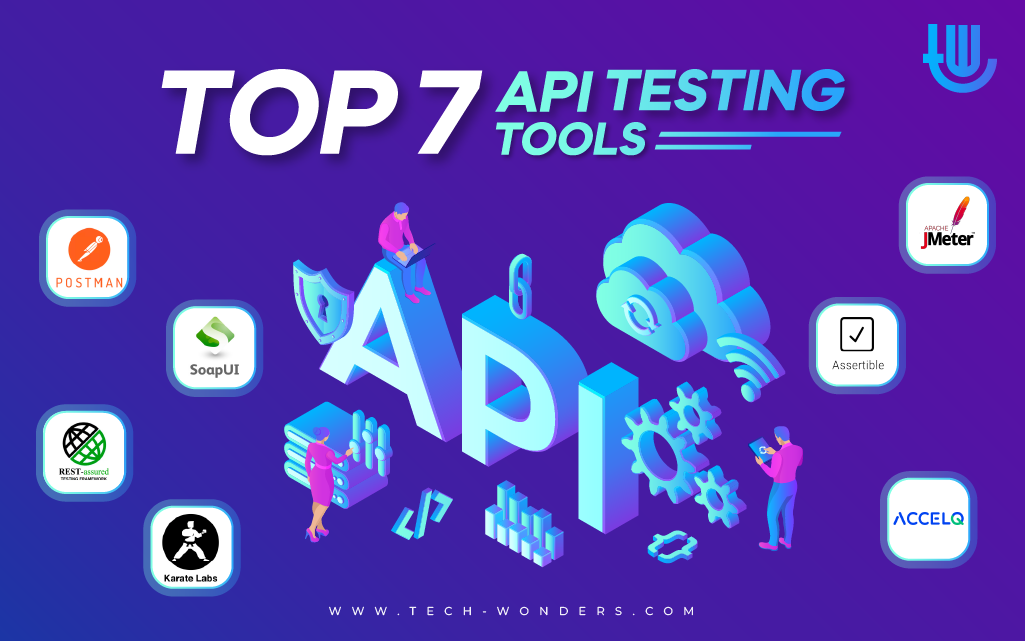APIs (Application Programming Interfaces) have become an essential part of modern software development. APIs allow different software systems to interact with each other, enabling data to be exchanged between them.
API testing is a crucial step in ensuring that APIs work as intended and meet the required specifications. In this article, we will provide a complete guide to API testing, including the top 7 open-source API testing tools.
What is API Testing?
API testing involves testing the functionalities of an API and ensuring that it meets the required specifications. API testing can be done at different levels, including unit testing, integration testing, and end-to-end testing. Unit testing is done on individual methods or functions, integration testing is done on a combination of multiple APIs, and end-to-end testing involves testing the entire API flow, including the user interface.
Why is API Testing Important?
APIs have become an integral part of modern software development, and they are used extensively for building applications and services. API testing is important because it ensures that the APIs are working correctly and meet the required specifications. It also helps to identify any issues or bugs in the API, which can be fixed before the API is released to the public. API testing also helps to improve the overall quality and reliability of the software system.
Benefits of API Testing:
- One of the main benefits of API testing is that it allows for testing to be done earlier in the development process. API testing can be done in isolation, meaning that it can be conducted before the full application is developed. This helps identify issues and bugs early on, saving time and resources in the long run.
- API testing also provides greater coverage than other forms of testing, as it can test both the front-end and back-end of an application. This includes testing the logic, performance, security, and functionality of an application. API testing can also be automated, which saves time and increases efficiency.
- Another benefit of API testing is that it enables better collaboration between development and testing teams. Since APIs are used by multiple applications, testing can be done in parallel by multiple teams. This leads to faster and more accurate testing results.
- API testing is also an important aspect of security testing. By testing APIs, vulnerabilities and potential security breaches can be identified early on and addressed before they become a larger issue.
Top 7 API Testing Tools:

Top API testing tools are here:
Postman:
Postman is a popular API testing tool that is widely used by developers and testers. Postman provides a user-friendly interface for testing APIs and allows users to create and execute automated tests. It also provides a collection of pre-built API requests, making it easy to get started with API testing. Postman is available as a desktop application and as a web-based tool.SoapUI:
SoapUI is an open-source API testing tool that is used for testing SOAP and REST APIs. SoapUI provides a user-friendly interface for testing APIs and allows users to create and execute automated tests. It also provides a variety of testing features, including assertion testing, load testing, and security testing. SoapUI is available as a desktop application and as a plugin for Eclipse and IntelliJ.REST-assured:
REST-assured is a Java-based API testing library that is used for testing REST APIs. REST-assured provides a simple and intuitive interface for testing APIs and allows users to create and execute automated tests. It also provides a variety of testing features, including assertion testing, load testing, and security testing.Karate:
Karate is an open-source API testing tool that is used for testing REST APIs. Karate provides a simple and intuitive interface for testing APIs and allows users to create and execute automated tests. It also provides a variety of testing features, including assertion testing, load testing, and performance testing.JMeter:
JMeter is an open-source tool that is used for testing web applications and APIs. JMeter provides a user-friendly interface for testing APIs and allows users to create and execute automated tests. It also provides a variety of testing features, including assertion testing, load testing, and performance testing.Assertible:
Assertible is an API testing tool that is used for testing REST APIs. Assertible provides a simple and intuitive interface for testing APIs and allows users to create and execute automated tests. It also provides a variety of testing features, including assertion testing, load testing, and performance testing. Assertible also provides a variety of integrations with other tools, including Slack and Zapier.ACCELQ:
ACCELQ is another popular tool for API testing. ACCELQ offers features such as automated test case generation, continuous testing, and integrated defect management. It also supports various types of APIs, including REST, SOAP, and GraphQL. With its AI-driven test automation technology, ACCELQ simplifies API testing and improves the accuracy and efficiency of testing.’
Conclusion:
In conclusion, API testing is an essential aspect of software development that ensures the proper functioning of applications. It helps to identify and resolve issues early in the development cycle, saving time and resources in the long run. By following the best practices and using the right tools, developers can create robust and reliable APIs that meet the needs of users and businesses.
The six open-source API testing tools mentioned in this guide are a great place to start for anyone looking to automate their API testing. These tools provide a range of features and functionalities that can help developers and QA professionals to design, execute, and manage API tests effectively.
Whether you choose to use Postman, SoapUI, REST-assured, Karate, Katalon Studio, or JMeter, remember that each tool has its strengths and weaknesses, and you should select the one that best suits your project’s requirements.
By investing time and effort into API testing, you can ensure that your applications are robust, reliable, and meet the needs of your users. With the right tools and techniques, you can streamline your API testing process and improve the overall quality of your software.